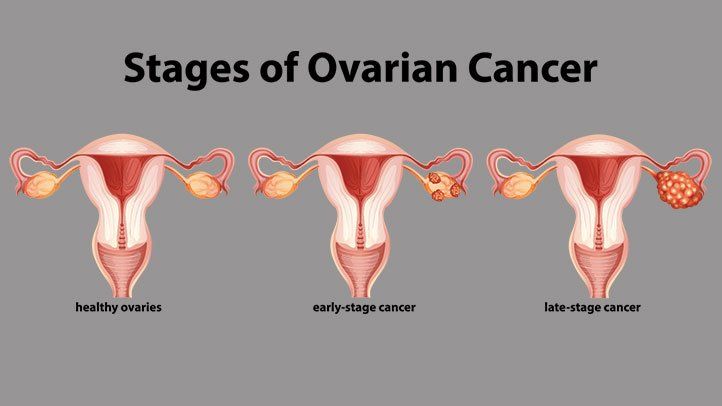Let’s talk about immunotherapy for ovarian cancer. Is it the next big advancement, or a bunch of hype? How can you know if immunotherapy can be an option for you? This article written by our experts explains the current situation and future of treatment options for this potentially deadly disease.
The Ovarian cancer breakthroughs with the help of immunotherapy
Are there any immunotherapies approved for ovarian cancer?
As of September 2021, only pembrolizumab (Keytruda) is approved for a small group of advanced ovarian cancer patients who have high levels of MSI or changes in the MMR genes whose cancer starts growing after chemotherapy or other drug treatments. Read all that there’s to know about Keytruda at Ankr’s patient portal.
What research is being done on immunotherapy for ovarian cancer?
Many types of immunotherapies are available or being studied to treat cancer, including:
Checkpoint Inhibitors
These therapies block proteins on immune cells called “checkpoints,” which hinder the immune system’s ability to “see” and attack cancer. When the checkpoints are turned off, your immune system can better recognize and kill cancer cells. Examples include nivolumab (Opdivo), pembrolizumab (Keytruda), avelumab (Bavencio), and ipilimumab (Yervoy).
Checkpoint inhibitors are approved for use in several cancer types. See my.ankr.us for details.
Chimeric Antigen Receptor (CAR) T Cell Therapy
With CAR-T cell therapy, special T cells (a type of white blood cell) are removed from your body and modified in a lab. The enhanced cells are then placed back in your body, so they can find, attach to, and kill cancer cells.
Cytokines
This therapy uses cytokines (small proteins that carry messages between cells) to rouse the immune cells to attack cancer. It has been used for decades for melanoma and kidney cancer, but a number of new drugs in this category are now being researched for other cancers.
Immunomodulators
They work by boosting parts of the immune system. Bevacizumab (Avastin) is a prime example of this category of drugs that’s already in use in ovarian cancer.
Cancer Vaccines
Cancer vaccines teach T cells to respond to certain tumor antigens (substances that cause an immune response).
Oncolytic Viruses
With this treatment, doctors give patients modified viruses to infect and kill cancer cells.
How to Find a Clinical Trial?
If you’re interested in immunotherapy, joining a clinical trial might be a good option. These studies may give you the opportunity to receive treatments that aren’t available otherwise.
Many trials testing immunotherapy for are being conducted around the country. You can search for different studies in your area at clinicaltrials.gov.
Interested in learning more? Here are some basics about ovarian cancer that you should absolutely know!
What is ovarian cancer?
Ovarian cancer is an abnormal growth of cells that forms within the ovaries. The cells multiply quickly and may invade and destroy healthy body tissue. The female genital system contains two ovaries, one on all sides of the uterus. The ovaries — each about the dimensions of an almond — produce eggs (ova) also because of the hormones estrogen and progesterone.
Treatment usually involves surgery and chemotherapy.
How is ovarian cancer diagnosed?
Ovarian cancer often progresses significantly before a patient is diagnosed. This is because the symptoms can be easily confused with less life-threatening digestive issues such as bloating, constipation, and gas.
Roughly only 20 percent are detected before it spreads beyond the ovaries. Unfortunately, to date, no screening tests have been demonstrated to improve early detection and outcomes of people with this disease..
Signs and symptoms of ovarian cancer may include
- Abdominal bloating or swelling
- Quickly feeling full when eating
- Weight loss
- Discomfort in the pelvic area
- Fatigue
- Back pain
- Changes in bowel habits, such as constipation
- A frequent need to urinate
Risk factors
Factors that will increase your risk include:
Older age. Risk increases as you age and it is most frequently diagnosed in adults over 60 years of age.
Inherited gene changes. A smaller percentage of cases are caused by genes changes inherited from your parents. Some of the genes that increase the danger of ovarian cancer include BRCA1 and BRCA2, p53, MSI (Lynch syndrome), BRIP1, RAD51C, and RAD51D.. These genes also increase the danger of other cancers.
Family history of ovarian cancer. If you’ve got blood relatives who are diagnosed with ovarian cancer, you’ll have an increased risk of the disease.
Being overweight or obese.
Postmenopausal hormone replacement therapy. Taking this treatment to regulate menopause signs and symptoms may increase the likelihood of developing this cancer.
Endometriosis. Endometriosis is an often painful disorder during which tissue almost like the tissue that lines the within of your uterus grows outside your uterus.
Age when menstruation started and ended. Beginning menstruation at an early age or starting menopause at a later age, or both may increase the danger of ovarian cancer.
Never having been pregnant. If you’ve never been pregnant, you’ll have an increased risk of ovarian cancer.

